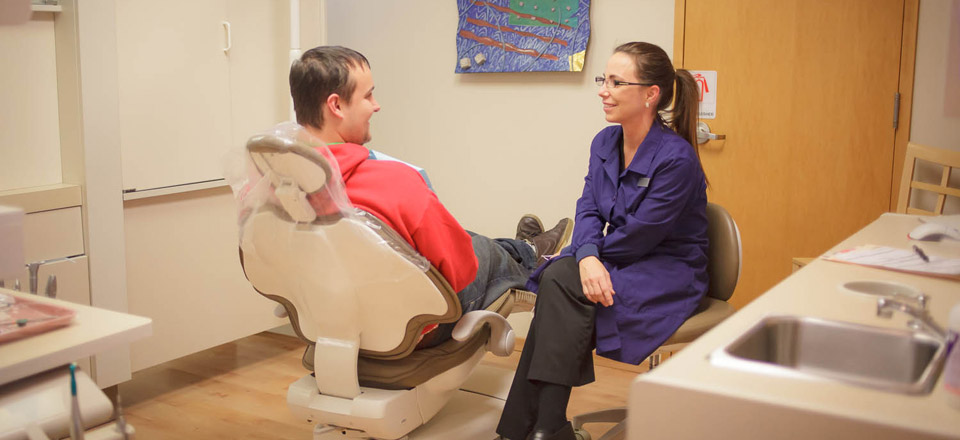The dental field is constantly changing. As we learn more about how interconnected oral health is with whole-body health, we in the dental industry need to have a greater awareness of our dental patients beyond just their mouths. For example, the same bacteria that resides
in the mouth have been found in the heart and arteries.
One of the disease processes we manage in the dental office frequently is periodontal disease. Periodontal disease is a chronic inflammatory disease associated with inflamed gums, bone loss and increase risk of cardiovascular conditions and diabetes. It is caused by a combination of virulent bacteria, viruses, and pro-inflammatory host responses.1 Because periodontal disease is an inflammatory condition, we need to consider other aspects of someone’s life that could contribute to inflammation. Here are some questions we ask to learn more about lifestyle factors could have implications with inflammatory levels.
1. How well do you sleep at night?
Recognizing airway management issues is much more than identifying someone who snores. Sleep apnea may be a symptom of a larger airway issue. Poor sleep hygiene and interrupted sleep both have negative health effects. Disruptions in sleep can weaken the immune system, cause a pre-diabetic state and promote diabetes, and promote Alzheimer’s disease and heart disease. It can also increase risk for gout, amongst other problems. Sleep apnea in women is associated with heart damage that leads to worse health outcomes than in men.
2. Are you drinking enough water daily?
Dehydration can be a major health problem and cause confusion, dry mouth, fatigue, joint pain, bad breath, muscle cramps, constipation and headaches. When you get thirsty you are already dehydrated.
3. What’s your exercise routine like?
Exercising as little as 22 minutes per day has huge metabolic and cardiorespiratory effects. It can lower risk of Type II diabetes by as much as 58%. Wearing a fitness tracker can help with physical activity (or inactivity!) awareness.
4. How are your stress levels?
How much stress is present and how you manage stress in your life can affect inflammation in the body. Chronic stress lowers your immune system and has been linked to many health problems.
5. What is your diet like?
We all know that nutrition and proper antioxidant levels will affect overall health and how your body is able to manage inflammation. The mediterranean diet is recommended for helping to lower inflammation. Nutrients should come from food ideally rather than supplements.
6. Have you had your blood glucose levels measured?
Insulin resistance or diabetes can have many other health implications, including increasing risk of cardiovascular disease. It can make controlling inflammation in the mouth more difficult. Any person with periodontal disease should be screened for diabetes.
7. Do you know your lipid numbers?
Abnormal levels of lipids (fats) leads to the buildup of fatty plaque inside arteries, which can increase risk of heart attack and stroke. If you do know your lipid levels, you can divide your triglyceride number by your HDL number. If the result is over 3.5, you may be insulin resistant.
8. Do you get chronic sinus infections?
This could signify that a yeast or fungal infection is present. You may benefit from using a sinus spray with a xylitol base. Yeast and fungal infections in the mouth can lead to periodontal breakdown.
So why should your dentist be asking you these questions? It all boils down to something called C-Reactive Protein (CRP). CRP levels rise in response to inflammation in the body. Periodontal disease and periodontal pathogens contribute to whole body inflammation, which is the driver of many heart attacks and strokes. All of the above questions have to do with a person’s lifestyle. They are areas where people can make changes and lower their risk for disease. By asking some simple questions and then additional questions to learn more, we can understand if a dental patient values the opportunity to become healthier.
Sources cited: 1) Periodontal 2000. 2012 Oct; 60(1): 110-37 Low Cost Periodontal Therapy Slots J.

